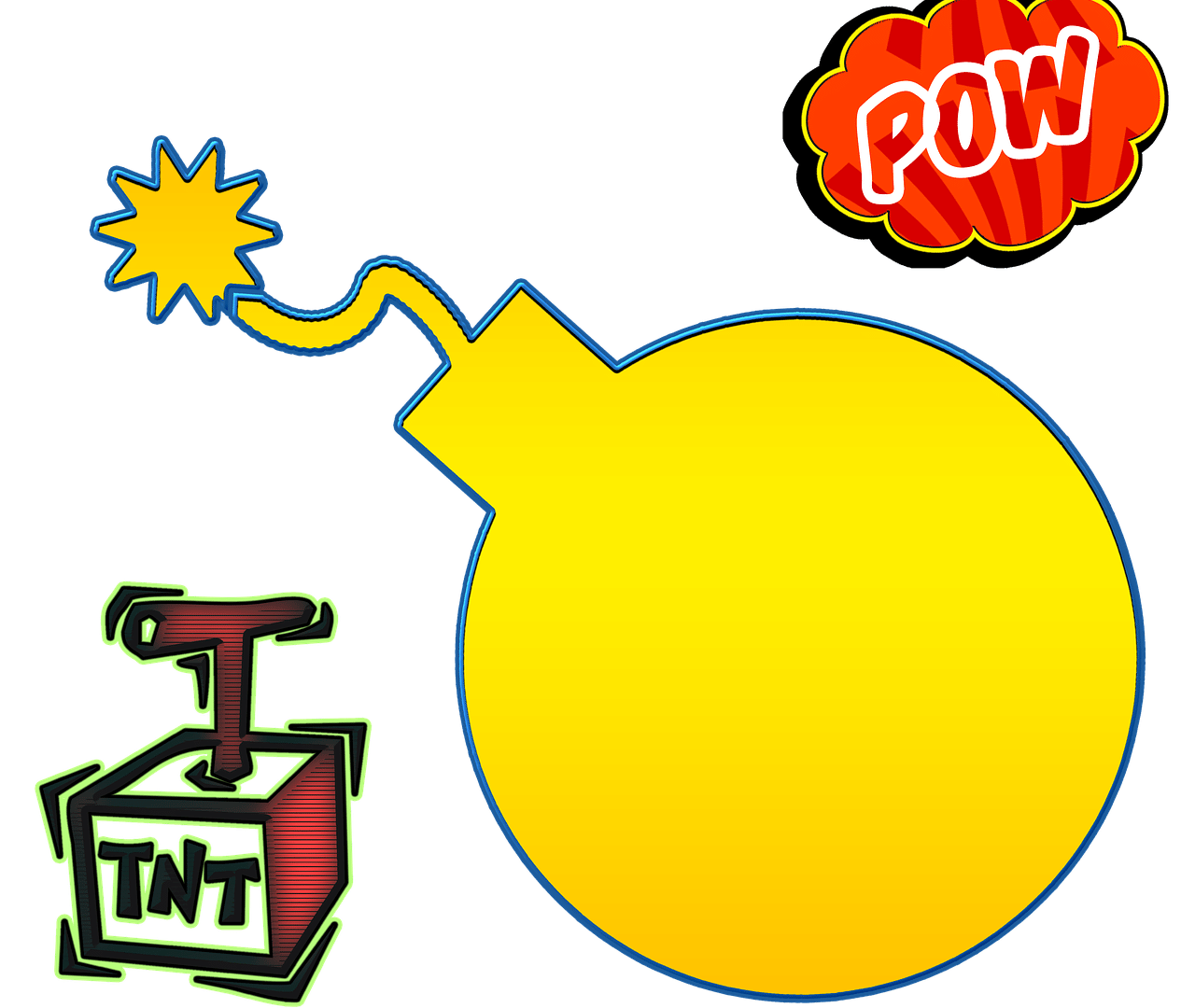
TNT is the acronym for trinitrotoluene, an explosive substance.
TNT is the acronym for trinitrotoluene , a highly powerful explosive substance . This chemical compound, which is part of the aromatic hydrocarbons , is derived from the nitration of toluene .
In more technical terms, TNT is an aromatic hydrocarbon (a very stable organic compound thanks to the electronic delocalization of its pi bonds); It is crystalline and has a rather pale yellowish color. Its casting takes place once it reaches 81 °C.
Since TNT has an excess of carbon, it is possible to obtain more energy per kilogram if it is mixed with components rich in oxygen: for example, by combining it with ammonium nitrate you obtain amatol , an explosive widely used in the 20th century by the armed forces.
TNT stability
Once refined, TNT is noted for its stability . Movements, blows and friction are unlikely to make it explode: to explode, it must be hit by a two-kilogram mass falling from at least thirty-five centimeters high. That is why it is blown up using a detonator .
Another characteristic of TNT is that it does not absorb water nor react when in contact with metals . In this way, thanks to its stability, it is possible to store TNT for a long time with relatively low risk. Other explosives, such as nitroglycerin and dynamite , carry greater risks .
In addition to presenting a lower risk of accidental detonation , TNT is very easy to liquefy with hot water or steam , a relatively safe procedure that then allows the result to be introduced into certain projectiles.
The temperature it reaches when it explodes is 470 °C, and the proportion of each type of gas at that moment is the following: 70.5% CO (carbon monoxide); 19.9% N2 (dinitrogen, molecular nitrogen or, as it is often called, nitrogen); 4.2% C (carbon); 3.7% CO2 (carbon dioxide); 1.7% H2 (dihydrogen).

In the 20th century, TNT was often used by the armed forces.
Your discovery
Discovered by a German scientist in 1863 , TNT was initially used as a dye , specifically yellow ocher. Only with the passage of time was its usefulness as an explosive realized, partly due to the difficulty that its detonation imposes when compared to other compounds, but also because it is not as powerful as them.
The German army began to use TNT as an explosive at the beginning of the 20th century , and this gave it a clear advantage over Great Britain in its confrontations: while the latter's projectiles (made with a lydite filler) used to explode as soon as collided with the ships, which represented a considerable waste of energy before reaching their interior, the anti-armor projectiles with TNT fulfilled their objective without any problem.
TNT in different expressions and names
Currently, the expression TNT is often used in colloquial language as a synonym for explosive. Several rock bands and albums, in fact, carry the acronym in their name.
TNT, on the other hand, is the acronym that identifies the television channel Turner Network Television , founded in 1988 by Ted Turner . This channel, whose headquarters are located in the American city of Atlanta , broadcasts series and movies for adults, and also includes certain sporting events in its programming.
The TNT channel is not only present in the United States , but also reaches Spain and Latin America . Among the original productions that it has broadcast throughout its history, some stand out, such as the following: "Latin Directors" (deals with the biographies of the most prominent Latin American directors, also presenting fragments of interviews); "TNT+Film" (offers a series of film-related activities) and "Hollywood: ONE ON ONE" (stories from American directors and actors about their experiences making a film, as well as behind-the-scenes tidbits).
In France , finally, Digital Terrestrial Television ( DTT ) is known as TNT by the expression Télévision Numérique Terrestre .
